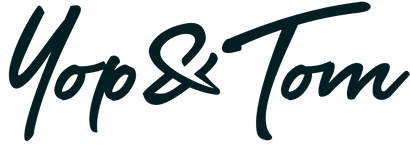Ihr Warenkorb ist leer
Menü

Lee Chambers was in his late twenties when he lost the ability to walk after a severe illness. He had to learn how to walk again with an 18-month old son and a pregnant wife at home. As you can imagine, Lee struggled enormously with his health, but also with his mental health. But he came out the other side a better and more connected man. A large part of his wellbeing and recovery was aided by writing and journaling.
Today we interview Lee Chambers about the hidden health benefits of journaling.

Could you tell us a bit about your background?
"My own personal journey is one of challenge and ownership. I suffered from mental health challenges at university. I found myself redundant just six months after graduating. I was told I was too young and too diverse to launch my first business. And in 2014, I lost the ability to walk due to illness. As I navigated my way through these adversities, I never once considered how powerful writing could be.
I had always found writing difficult. An academic necessity. I have always had an aptitude with statistics and an affinity for data. Surely writing was just not for me. And then, one day, I started something that became a habit, and it slowly changed my world view. Something simple, yet powerful, that costs little, but gives priceless clarity. That something is journaling".
When did you start journaling and why?
"I’d never been one for a formalised journaling process. I’ve always been a take notes here and there type of writer. The idea of sitting down and segmenting a time to write had always seemed rather abstract.
After losing the ability to walk, I suddenly found myself seated considerably more often than I was used too. I started to journal my feelings and my progress as I proceeded through walking rehabilitation and intensive physiotherapy. Not only was this an excellent way to track my progress towards recovery, but it also provided an element of therapy. I’d write down my thoughts and feelings, and this helped with processing them as I proactively pushed myself to get back walking again.
After a year, I was back on my feet and in a good place with my overall mobility. Now I wanted to try and control my chronic disease and find a way to come off my unpleasant combination of medications. Once again, journaling was pivotal in this pursuit.
I started to experiment with my nutrition, to find out which foods and ingredients energised me, which I could tolerate, and what would set my inflammation off or drain me. I journaled how I felt, as I isolated ingredients. Three full journals later, I had clarity on precisely what to eat to maximise my daily energy. Next up was sleep and movement, as I journaled my sleep patterns and movements to find out once again exactly what would leave me feeling at my best.
Suddenly, I was writing a considerable amount every day. I now bought a journal to document my weekly life with my children, to keep forever as a reference to days gone by. I started journaling as a tool to track data in my recovery, and it gradually became a habit, and today is a central part of my self-care routine, focus, creative output and documentation of my life".
What type of journaling did you do?
"My journaling journey started with a notepad and a pen. I hadn’t gone out with the intention of journaling, so hadn’t researched what was available. As a keen book collector, I had a stack of notebooks that I had never got around to writing in. I found this free form style worked well for me as I was recording health progress, thoughts and feelings. Some days I would get through half a page, other days it was six pages.
Tracking my nutrition, I turned my notebooks into a structured logging system. Looking back, it was a considerable effort to do that. Yet for me, I had a big reason why, and a mission to drive me forward.
Moving forward, I then purchased a very expensive notebook to begin to chronicle my life in. I felt the investment was worthwhile given how I hope that one day it will be read by people who didn’t live through these times. I’m always curious as to how journals are evolving and will be looking out which journals and notebooks catch my eye in 2020".
Were there any other things about the process that helped you get better?
"Journaling has been a massive factor in my life since my illness. It helped me to navigate my emotions through my health struggles and gave me an outlet when I didn’t feel like talking. It gave me a tangible way to see my progress as I recovered from illness, which kept me consistent on those mornings I was stiff and in pain. It gave me a way to clear my mind before going to sleep at night, taking my thoughts, and writing them down.
Journaling has had many other benefits that it is easy to overlook. I now find it much easier to write in a work context, as by writing every day, I have practised and become more skilled with a pen. It has helped me disconnect from the world and find a way to channel my creative edge. It has helped me stay focused on my goals and to remember life’s small wins. And it has also been a reflective tool by shining light on what I could potentially do better.
It has fostered a greater level of gratitude by making me focus and write down things I am grateful for, helped me to become better at expressing myself, and in so many ways become the author of my own life.
In my work, journaling is a powerful tool, which can be used to manage stress and anxiety, aid recovery, cultivate gratitude and promote reflection.
Amazingly, in some way, it has done all these for me over the past five years. The one major takeaway for me is simple; find a journal that works for you, and just start writing. Having a relationship with your mind through journaling is something that everybody should explore".
About Lee Chambers
Lee is now an Environmental Psychologist, Wellbeing Consultant and Founder of Essentialise Workplace Wellbeing. He works with individuals and organisations to create wellbeing strategies, works with leaders to cultivate emotional intelligence, and with teams to create productive environments. He holds an MSc in Environmental Psychology from the University of Surrey, is a member of the British Psychological Society, and is a board member of Wellbeing Lancashire.
Find out more about Lee’s work at: https://leechambers.org
Essentialise Workplace Wellbeing: https://www.essentialise.co.uk
Community journaling.Join the Weekly Spread.
Weekly content from the wider journaling community
Links to articles & videos of journaling tips & tricks
Interviews with people from the community
More of the Yop & Tom Content you love
10% off your first order
And every month we pick a subscriber from the previous month to win a FREE journal of their choice. Just because. We never send spam or sell your data and you can unsubscribe any time
Thank you!
Please check your email for confirmation.


